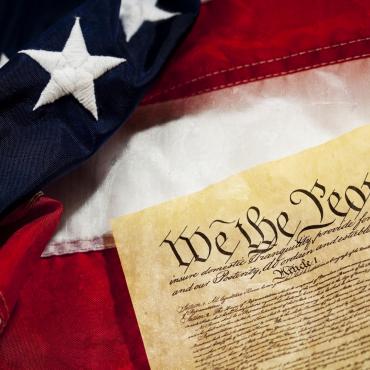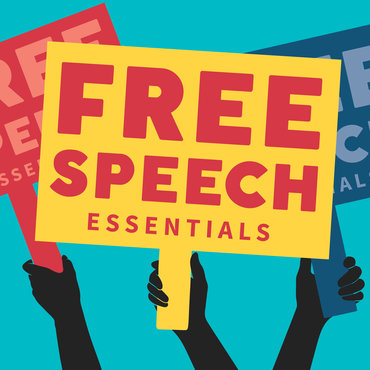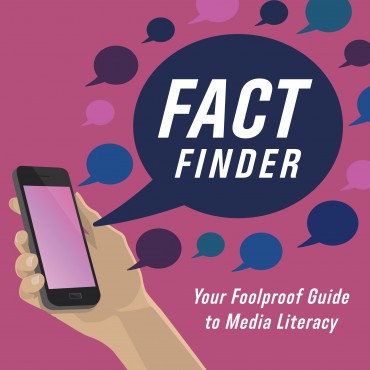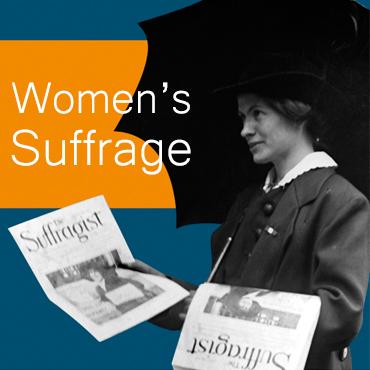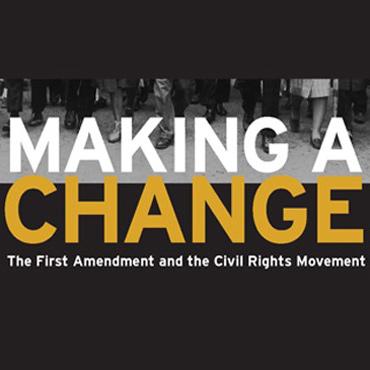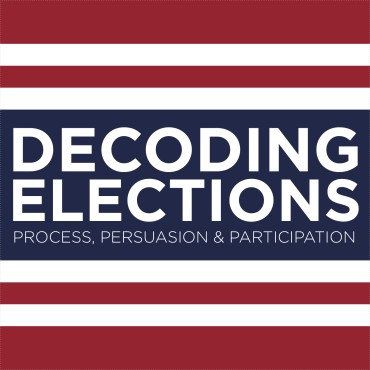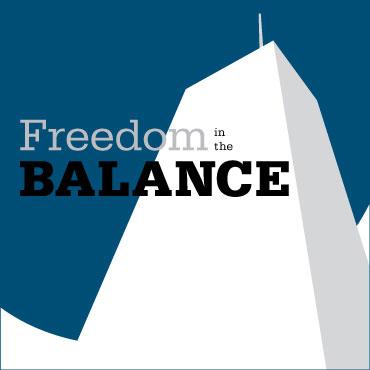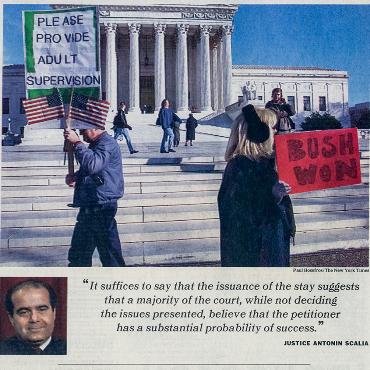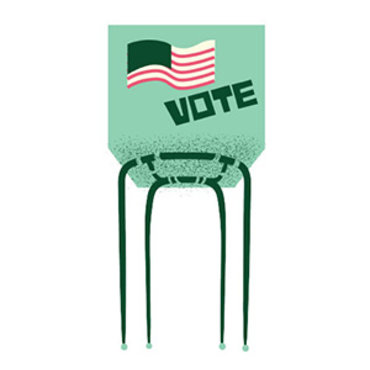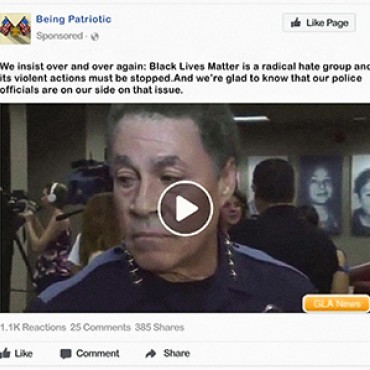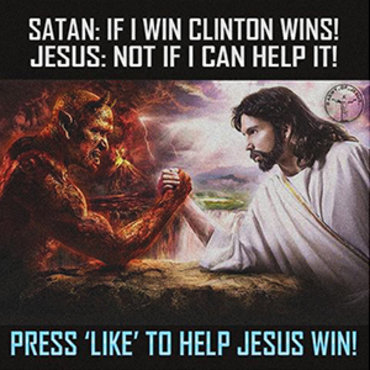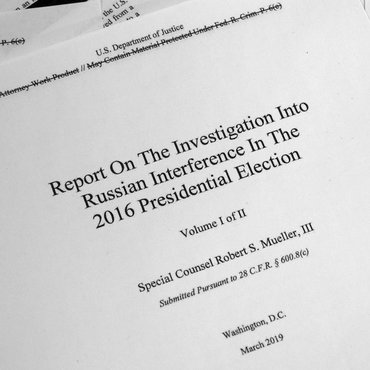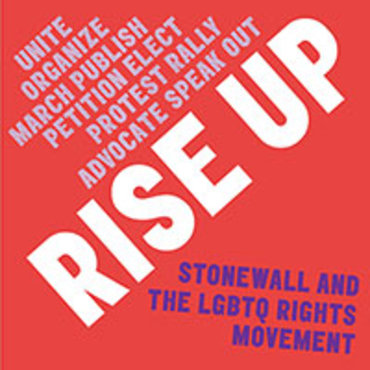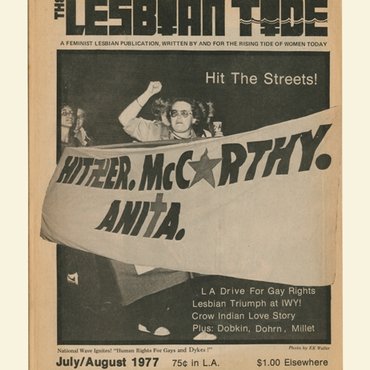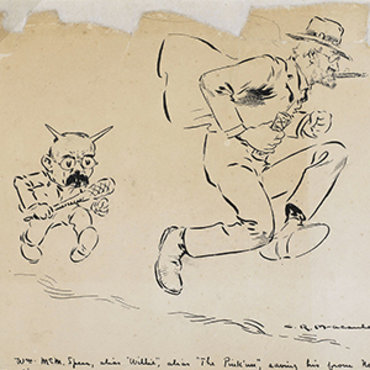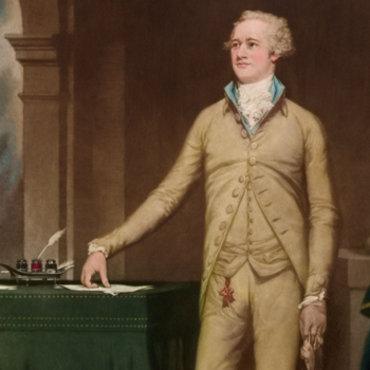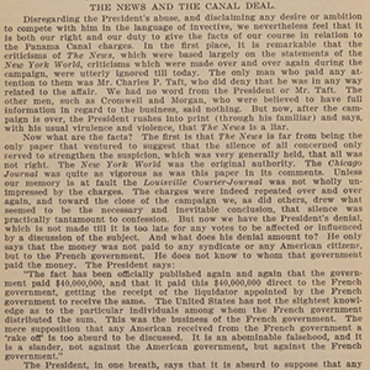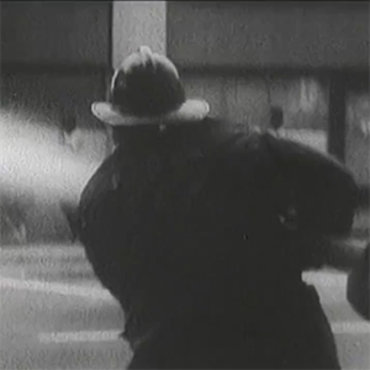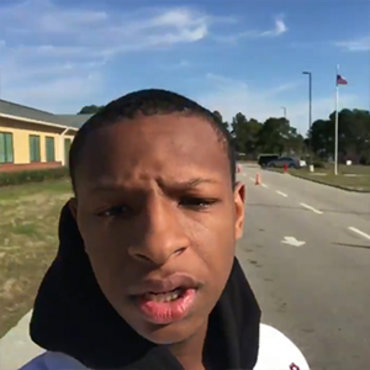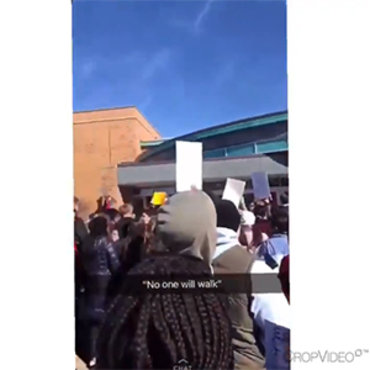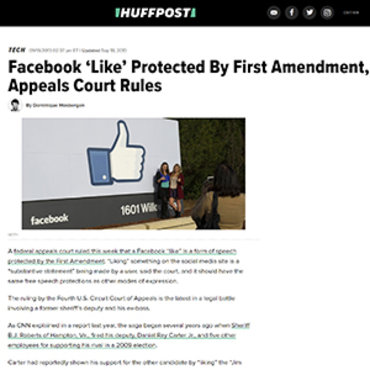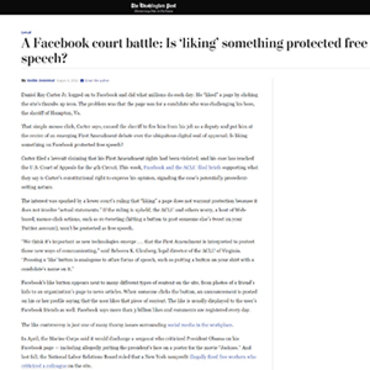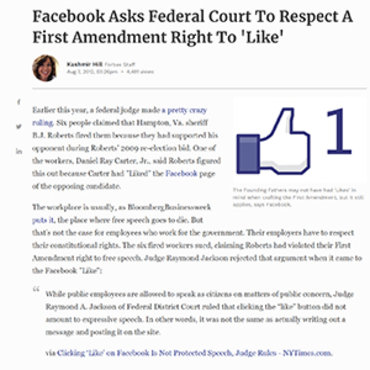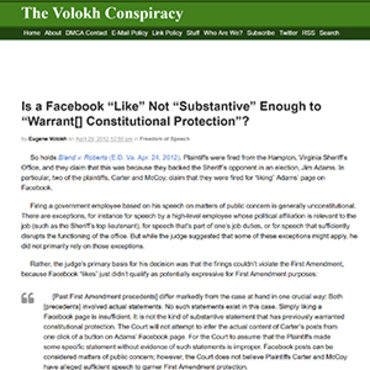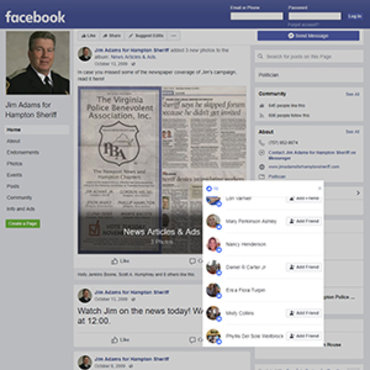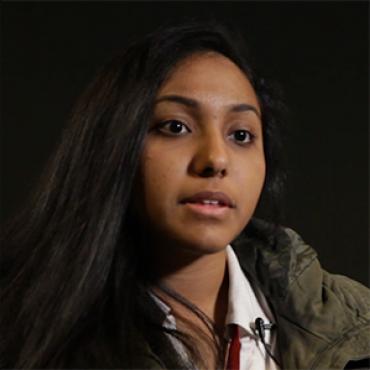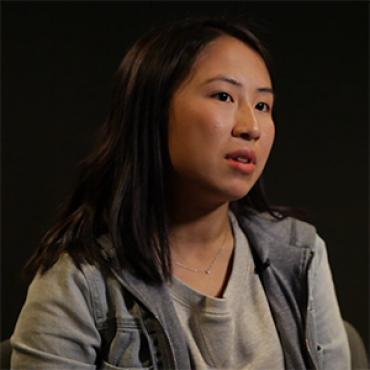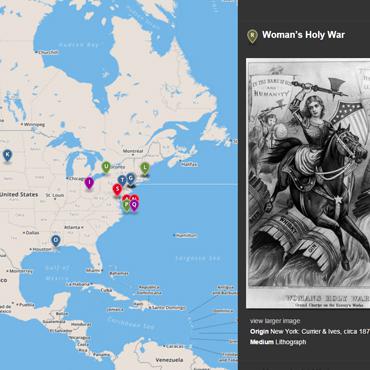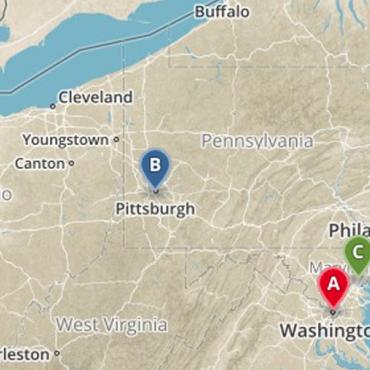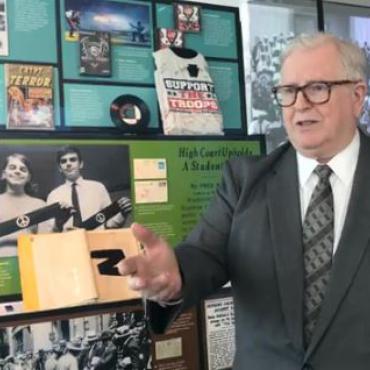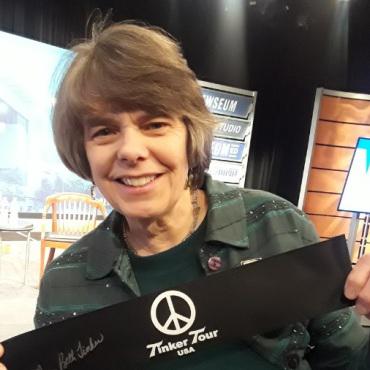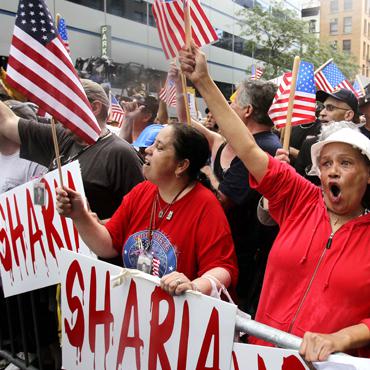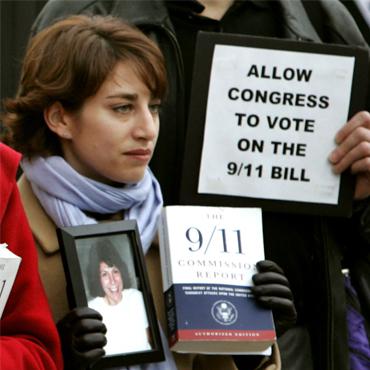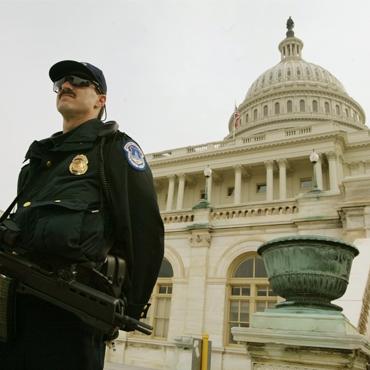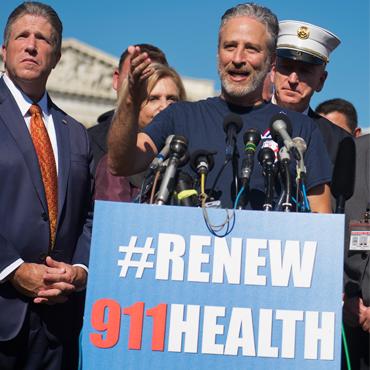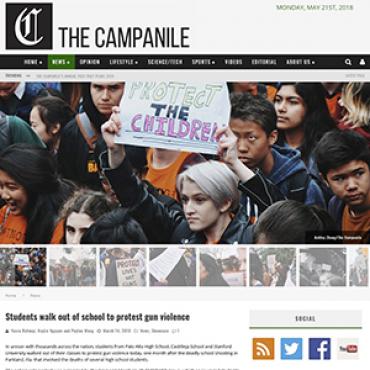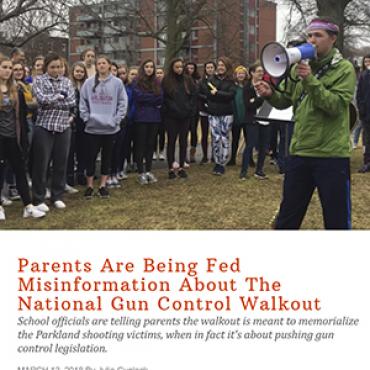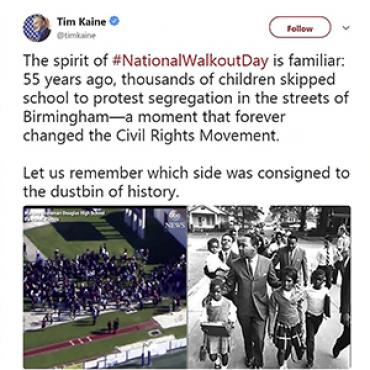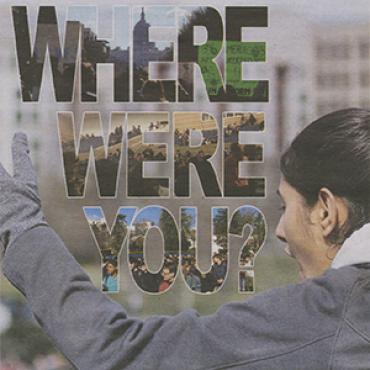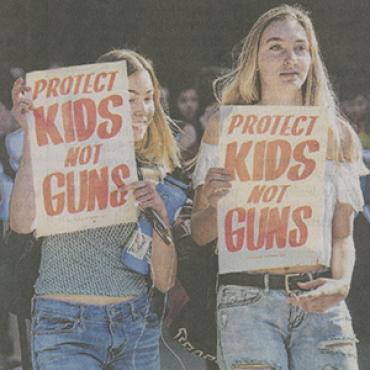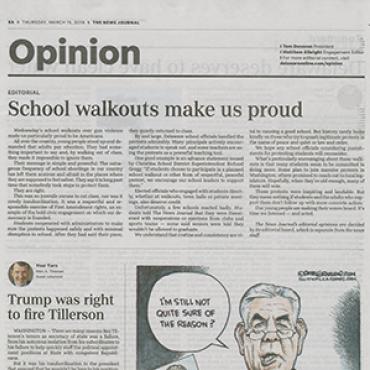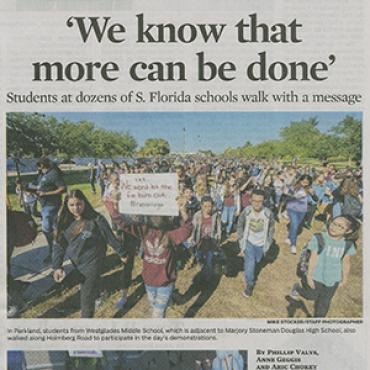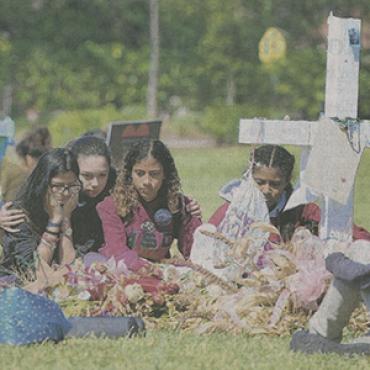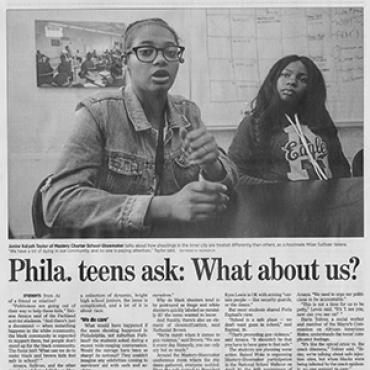Is the System Fair?
Throughout U.S. history, Americans have silently stewed and actively protested that elections are unfair and fixed against them. Explore these criticisms of the political process.
Get even more great free content!
This content contains copyrighted material that requires a free NewseumED account.
Registration is fast, easy, and comes with 100% free access to our vast collection of videos, artifacts, interactive content, and more.
NewseumED is provided as a free educational resource and contains copyrighted material. Registration is required for full access. Signing up is simple and free.
With a free NewseumED account, you can:
- Watch timely and informative videos
- Access expertly crafted lesson plans
- Download an array of classroom resources
- and much more!
- Elections
- Politics
- Protests
- 6-12
- College/University
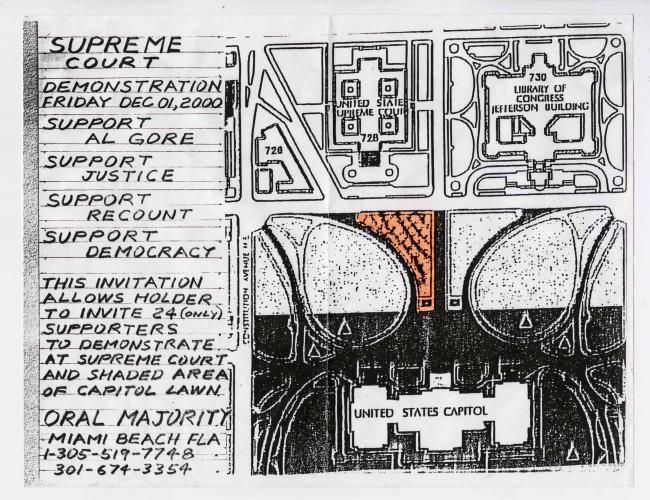
This map indicates where Al Gore supporters can gather outside of the U.S. Supreme Court to protest at a Dec. 1, 2000, hearing on the Florida recount.
- Ask students to brainstorm all the ways the public is involved in the election process. Can individuals make a difference?
- This case study is one of three in the Public Participation section of the EDCollection that looks at the use of social media, campaign events and efforts to change a political process that some consider unfair. Explain that the case study they will be looking at will raise questions about efficacy of public engagement in the election process.
- Read the Explore the Debate question aloud and/or write it on the board. Read them the overview that sets the scene for group work. Tell them they will use historical and contemporary examples to reach a consensus in small groups on an answer to the debate question.
- Pass out copies of the case study and the Organizing Evidence worksheet. Have the groups read each of the four Election Essentials and use the Questions to Consider to help guide the discussion. They should complete sections 1 and 2 on the worksheet.
- Have the students look at the Pages From History artifacts for the case study on NewseumED.org and complete section 3 on the worksheet. Give the groups 15 minutes to collect and organize information to formulate evidence-supported arguments for their answer to the debate question. (If time is an issue, skip the artifacts or assign as homework.)
- Ask the groups to share their conclusions and reasoning. You may want to use the Questions to Consider again to push and expand the debate.
- Copies of the case study handout, one per student (download)
- Organizing Evidence worksheets, one per group (download)
- Access to NewseumED.org case study artifacts
- NewseumED Pinterest board of related resources (optional)
Do all voters have an equal voice in American democracy?
While Americans often think of the United States as a democracy, plain and simple, the electoral process has never been completely democratic. The Founding Fathers designed the Electoral College so that presidential selection would be one step removed from the popular will. Political party and state government rules stop some voters from participating in primaries and general elections. The skyrocketing cost of running a political campaign can allow wealthy individuals and corporations to take leading roles and discourages those with smaller pockets. Even voting machines have prevented ballots from being counted. Sometimes the sense of system failure or that their vote doesn’t matter leads to low voter turnout; other times, it leads the citizenry to fight for change.
1. Overruling the Will of the People
In 1824, when the Electoral College gathered to elect a new president, none of the four contenders had received the required majority. This left the U.S. House of Representatives to decide between the three top vote-getters: Andrew Jackson, John Quincy Adams and William Crawford. Although Jackson had the greatest number of electoral and popular votes, the House picked Adams, marking the first time that the winner of the popular vote did not win the presidency. Jackson and his supporters were outraged by Congress’ decision. In the 1876, 1888, 2000 and 2016 presidential elections, history repeated itself when the winner of the popular vote didn’t win the election.
2. Diversifying Delegates
While the 15th and 19th Amendments gave African Americans the right to vote, Southern states used many tactics, including poll taxes and literacy tests, to keep blacks out of the electoral process. Mississippi allowed only whites to represent their state at the Democratic Party national convention. In response, an interracial group of civil rights activists formed the Mississippi Freedom Democratic Party in 1964. They nominated their own delegates and demanded to be seated as the official state delegation. Party leaders, afraid of losing white members, offered to seat two MFDP members and have integrated delegations in 1968. The MFDP rejected this compromise, but four years later successfully joined with other activists to represent Mississippi.
3. The Supreme Court Gets Involved; Congress Responds
The 2000 election came down to Florida’s 25 electoral votes. After a machine recount, Republican George W. Bush led Democrat Al Gore by 327 votes, but this did not include thousands of improperly punched paper ballots that machines could not read. Gore pushed for manual recounts; Bush challenged the standards used to determine voter intent. Eventually, the U.S. Supreme Court ruled 5-4 to stop the Florida recount, settling the election in Bush’s favor. It was the first time the Supreme Court participated in a contested presidential election and many people protested that Bush had been “selected, not elected.” In response to the controversy, Congress passed the Help America Vote Act in 2002 to make voting “convenient, accessible, and easy” for everyone.
4. The Power of Protest
Sometimes, citizen outrage leads to change. In 2016, supporters of Bernie Sanders protested Colorado and New York rules that limited their primaries to registered party members, thus shutting out independent voters who backed Sanders. In West Virginia and Hawaii, Sanders supporters started petitions to end the use of superdelegates (party or elected officeholders not obligated to vote for a particular candidate), arguing that the practice put outsider candidates at a disadvantage. In response to these issues, the Democratic Party created the Unity Reform Commission to make recommendations. At its fall 2018 meeting, the Democratic National Committee voted to radically limit the influence of superdelegates. Beginning in 2020, superdelegates are barred from voting on the first ballot at a nominating convention unless a candidate has already secured a majority of elected, pledged delegates.
- Do you agree with complaints that the electoral process was unfair in some or all of these cases? Why or why not?
- Do you think that concerns about fair representation make voters more or less likely to go to the polls? Explain.
- What, if any, changes do you think should be implemented to improve the system of selecting a president? Consider voter registration, ballots, the electoral process, access to the polls, etc.
Pick one of the examples above or another historical example of tension over voting or vote counting. Create a presentation that explains the problem, its impact and your own proposal for how such a problem could be avoided in the future.
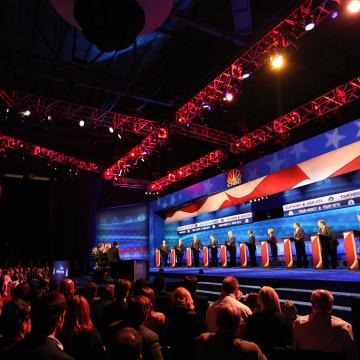
What’s your political personality type?
What’s your political personality type?
Make Your Voice Matter
Under 18 and can't vote?
Check out other ways to get involved.
-
Common Core State Standards: CCSS.ELA-LITERACY.CCRA.SL.1
Prepare for and participate effectively in a range of conversations and collaborations with diverse partners, building on others' ideas and expressing their own clearly and persuasively.
-
NCSS C3 Framework: D4.1.6-8 and D4.1.9-12
6 - 8: Construct arguments using claims and evidence from multiple sources, while acknowledging the strengths and limitations of the arguments. 9 - 12: Construct arguments using precise and knowledgeable claims, with evidence from multiple sources, while acknowledging counterclaims and evidentiary weaknesses.
-
Center for Civic Education: CCE.II
A. What is the American idea of constitutional government? B. What are the distinctive characteristics of American society? C. What is American political culture? D. What values and principles are basic to American constitutional democracy?


